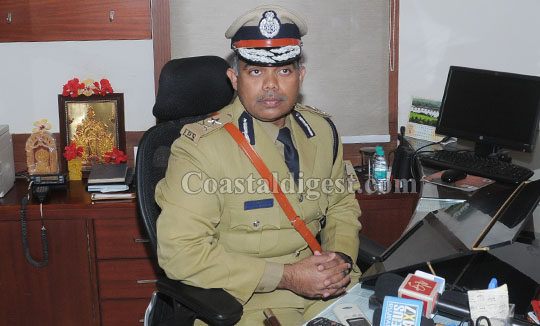Mangaluru, Feb 15: The Karnataka government has now given more power to District Police Complaints Authority (DPCA) by appointing the chiefs of city police commissionerates in the state as its member secretaries.
Accordingly, M Chandra Sekhar, police commissioner of Mangaluru will be the member secretary for Dakshina Kannada Authority. The regional commissioner, Mysuru will be the chairperson of the authority as per government order dated February 4, 2016.
The DPCA was set up following a government order dated October 20, 2014 after increasing complaints of police atrocities.
The authority is empowered to inquire into custodial deaths, grievous injuries, rape and such other serious offences committed under officers of the rank of deputy superintendents/ assistant commissioners of police and below them.
It also has the powers to inquire into misbehaviour and misuse of power by such officials. Complaints against officers above the rank of DySP/ ACP would have to be submitted to the State Police Complaints Authority.
Dakshina Kannada Authority
The Dakshina Kannada Authority may be contacted at the office of the Commissioner of Police, Mangaluru City, Mangaluru 575001, phone 0824-2220801.
The State authority may be contacted at Room No. 36, Ground Floor, Vikasa Soudha, Bengaluru 560001, phone 080 22386063, 22034220, said an official release here.







Comments
Actually in any Government office not to keep any religion photo or Status in govt office (As per indian Constituency
Add new comment